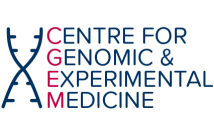Type 1 Interferon Biomarker Study in Autoimmune Disease.
Joint funding initiative Connect Immune, supports research into interferon role in autoimmunity. November 2018

Research into immune-mediated inflammatory conditions is often pursued in a disease-specific manner. However, emerging evidence suggests that important common mechanisms exist that are shared across immune disorders, so that there are significant opportunities to drive forward understanding by encouraging research that works across diseases. Connect Immune is a new initiative jointly established by three medical research charities (Versus Arthritis (formally Arthritis Research UK), the Juvenile Diabetes Research Forum (JDRF) and the Multiple Sclerosis Society, with support from the British Society for Immunology, the Wellcome Trust and the Medical research Council), specifically aimed at assisting the autoimmunity research community to come together as a consortium. The first project funded under this new scheme is led by Professor Yanick Crow from the Centre for Genomic and Experimental Medicine.
Spearheading a group of five research teams, the funded project focusses on the signalling molecule type 1 interferon (T1I). T1I is normally released by host cells in response to viral infection. However, it is thought that an increase in T1I is relevant to the cause of several autoimmune conditions including SLE and type 1 diabetes. Conversely, interferon therapy is a treatment option for controlling inflammation in MS. The current work aims to understand how T1I signalling can be associated with so many different phenotypes, and why it is harmful in some autoimmune states but protective in others. Answering these questions will involve a novel suite of precision biomarkers for T1I. This includes a revolutionary protein assay using single molecule array (SIMOA) technology in the form of the Quanterix SIMOA HD-1 Analyzer, recently installed in the Centre for Genomic and Experimental Medicine, Edinburgh. As Professor Crow, Dr David Hunt (Centre for Clinical Brain Sciences, University of Edinburgh) and colleagues from the Institut Pasteur (Paris) have recently shown, this platform, aimed at the diagnostic market, allows the recording of interferon at the fg/ml concentration.
The current project is being conducted in collaboration with experts from the University of Glasgow, Newcastle University, the Crick Institute and King’s College London, who will work together to progress the development of clinical-grade precision biomarkers and a better understanding of T1I-driven pathogenesis, thereby enabling disease classification and patient stratification for personalised therapies. The project team also hope that the study will lead to new hypotheses that can form the basis of future grant applications and support the development of a larger consortium.
We are delighted to have received the generous support of the Connect Immune initiative. Combined with access to samples from cohorts of different autoimmune diseases, our precision biomarkers will enable us to interrogate the role of IFN in distinct autoimmune settings in a way not previously undertaken, thereby defining novel themes in autoimmunity and leading to improved patient stratification and treatment.
Further Reading:


